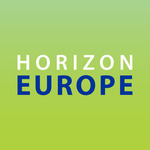TWON
BASIC INFORMATION
DESCRIPTION
Experts, scholars, and leading political decision-makers warn that Online Social Networks (OSNs) have transformed public debate in harmful ways. Personalization algorithms, it has been argued, create so-called filter bubbles and echo chambers where users’ opinions are reinforced, amplifying processes of opinion polarisation.
Despite frequent calls for interventions to minimize such undesired effects, there is no agreed-upon method for estimating the effects of changing the parameters of the design of a social network service. Crucially, the complexity of such systems makes it hard to translate results of isolated experiments into an estimate of the overall effects.
The TWON project will develop a novel empirical method for systematically researching the effects of design choices of mechanisms inside OSNs, by creating digital twins of social network sites, called TWONs. The TWON can then be used to study counterfactuals, such as: How would the effects look like, had the OSN been designed differently?
In order to achieve that, the TWON project will combine empirical observations of existing OSNs, theory-informed simulations, and specific case studies. These form an iterative process, in which we will build and refine the TWON. If successful, this would be a major leap towards a better understanding of platform mechanics, both for the scientific community and for societal stakeholders.
The TWON project will produce evidence-based recommendations for regulatory innovations regarding OSNs and enhance digital citizenship by participatory methods. This can reduce the detrimental effects on democratic debates when platforms are primarily optimized for economic gain. TWON enables OSN research in a controlled but naturalistic environment that would not be possible relying on for-profit OSN operators. The effectiveness of the TWON method will be demonstrated in two case studies on two diametrically controversial ongoing debates: the conflict in Ukraine and COVID-19.
Contact Us
Jožef Stefan Institute
Centre for Knowledge Transfer in
Information Technologies (CT3)
Jamova 39, SI-1000 Ljubljana
Slovenia
email: ct3@ijs.si
phone: +386 1 477 3593
fax: +386 1 477 3935


